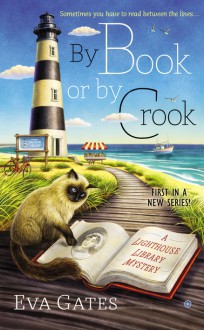
Mrs. Ramsay sat silent. She was glad, Lily thought, to rest in silence, uncommunicative; to rest in the extreme obscurity of human relationships. Who knows what we are, what we feel? Who knows even at the moment of intimacy, This is knowledge? Aren’t things spoilt then, Mrs. Ramsay may have asked (it seemed to have happened so often, this silence by her side) by saying them? Aren’t we more expressive thus? The moment at least seemed extraordinarily fertile. She rammed a little hole in the sand and covered it up, by way of burying in it the perfection of the moment. It was like a drop of silver in which one dipped and illumined the darkness of the past.
As much as I hated this book on my first read, I really enjoyed my re-read of it. That is, I enjoyed the act of reading the book this time. The re-read has only slightly improved my enjoying of the book itself.
Woolf's writing still drives me nuts. The stream of consciousness babble that jumps from one idea to the next without really developing any of them just does not work for me.
And while I get that the jumping around is an expression of the fleeting moments of life that connect people with other people, with their surroundings, and with their own thoughts, I find it really alienating and just frustrating to read. The only impression that I got from this style is a doubt over whether the author had any idea what they wanted to say in the first place...before they added several pages of internal thought process from another character's point of view.
It was his fate, his peculiarity, whether he wished it or not, to come out thus on a spit of land which the sea is slowly eating away, and there to stand, like a desolate sea-bird, alone. It was his power, his gift, suddenly to shed all superfluities, to shrink and diminish so that he looked barer and felt sparer, even physically, yet lost none of his intensity of mind, and so to stand on his little ledge facing the dark of human ignorance, how we know nothing and the sea eats away the ground we stand on — that was his fate, his gift. But having thrown away, when he dismounted, all gestures and fripperies, all trophies of nuts and roses, and shrunk so that not only fame but even his own name was forgotten by him, kept even in that desolation a vigilance which spared no phantom and luxuriated in no vision, and it was in this guise that he inspired in William Bankes (intermittently) and in Charles Tansley (obsequiously)and in his wife now, when she looked up and saw him standing at the edge of the lawn, profoundly, reverence, and pity, and gratitude too, as a stake driven into the bed of a channel upon which the gulls perch and the waves beat inspires in merry boat-loads a feeling of gratitude for the duty it is taking upon itself of marking the channel out there in the floods alone.
Seriously. WTF? Get on already with telling us why they yet again can't make it to the flipping lighthouse.
Fret not, reader, they do get there in the end.
(spoiler show)
Nope the writing was as annoying as on my first read. However, this time around I was better prepared for the sheer onslaught of words that do not seem to support any discernible plot at all.
So, when I got over being annoyed by the writing, I did manage to get something out of the book:
1. I had not realised how much WWI played a part in this story. Seriously, I had totally forgotten that the story is divided in a part before the war and one set after it. And with that realisation this time (I am not sure how I missed this on the first read ... other than really hating the book), there is a point to the different outlook of the characters, and indeed there is also some character development. My favourite of which was that of the character Carmichael. Though, of course, Lily Briscoe, the young artist, also becomes interesting. I kind of saw her as a modernised continuation of Mrs Ramsay in the third part of the story, and I rather liked this portrayal.
2. Which brings me to Mrs. Ramsay. Wowser. What an interesting woman stuck in the customs of her time. Seriously, on this re-read I ended up constantly comparing Mrs. Ramsay to E.M. Forster's Mrs. Wilcox of Howards End.
Both are women brought up and living the mores of the previous generation at a time when the next generation already seem to have moved so far ahead that the Mrs. Ramsays and Mrs. Wilcoxs of the world seem lost and out of place. The tragedy is compounded when both characters express how they are fully aware of their situation but cannot see a way to change.
3. There was quite a lot angst and anxiety in this story: whether it was Mrs. Ramsay feeling trapped in her own life or Lily wallowing in self-doubt after Charles (was it Charles?) tells her that women can't paint (...or be any other kind of true artist).
Was there some of Woolf's own in this? I don't know. However, I really wished that Woolf had dismissed her plan of jumping from thought to thought and from character to character and spent more time with the individual characters themselves.
In summary, I did get a lot more out of the book on the re-read BUT I still dislike the writing style and lack of narrative clarity of the book immensely.
It's not a book I would recommend to anyone. In fact, I'd sooner recommend Mrs. Dalloway, and that one was not a favourite either.


 Log in with Facebook
Log in with Facebook 








